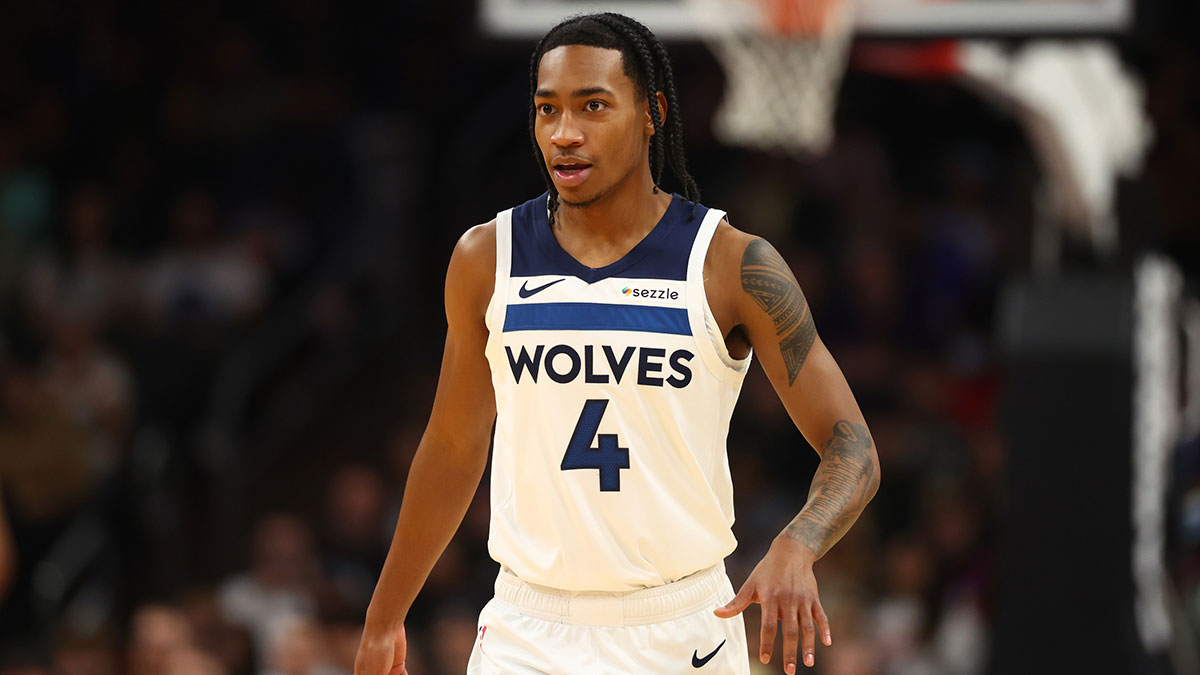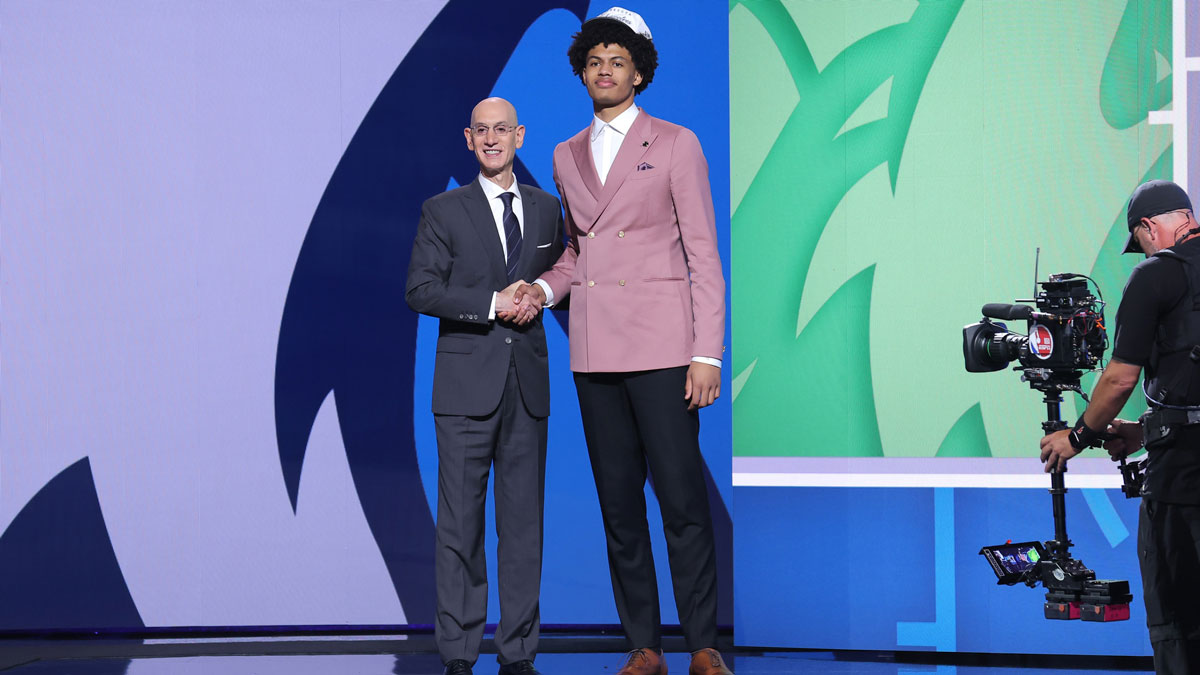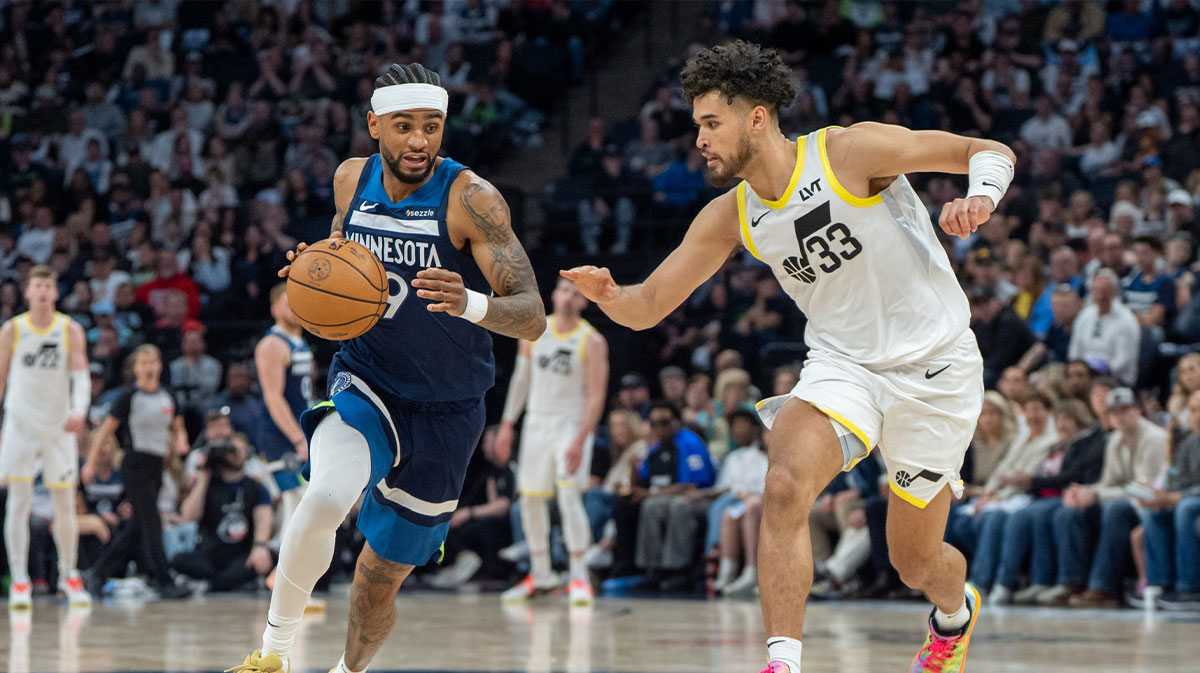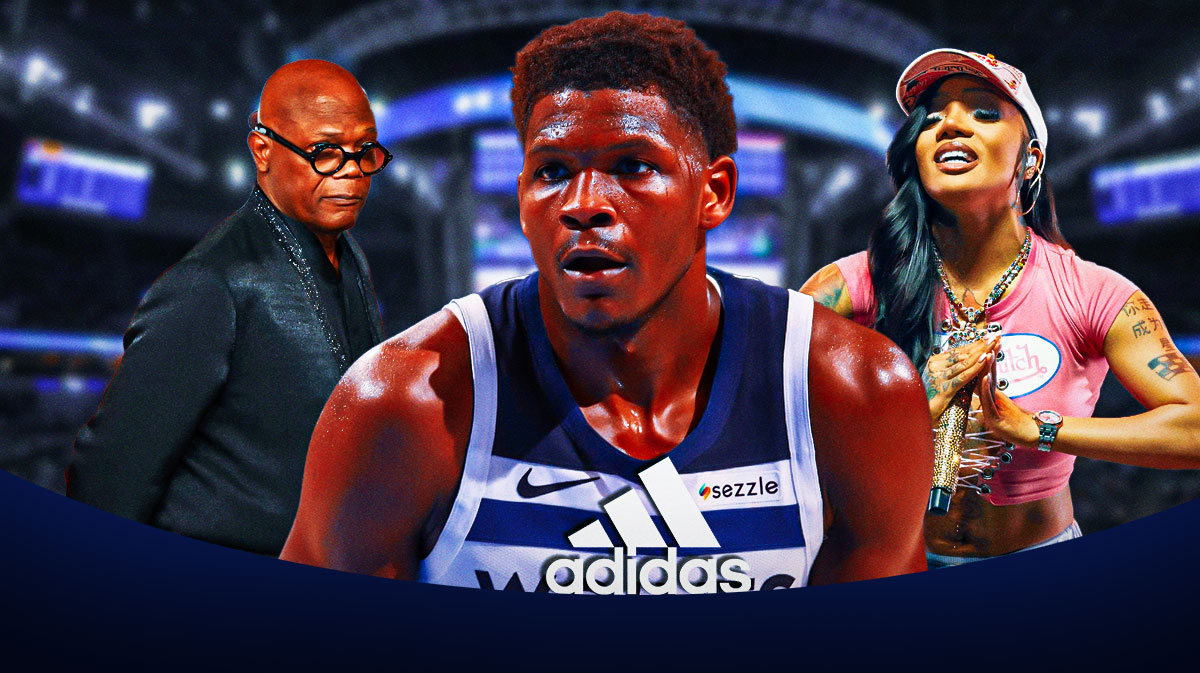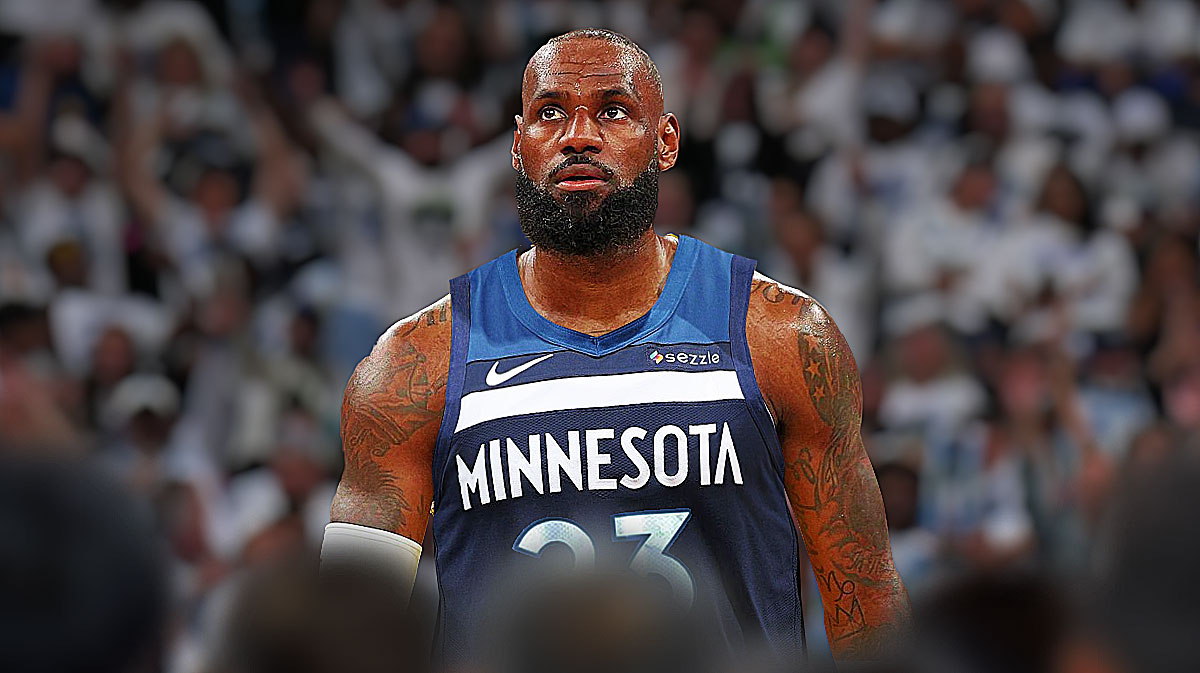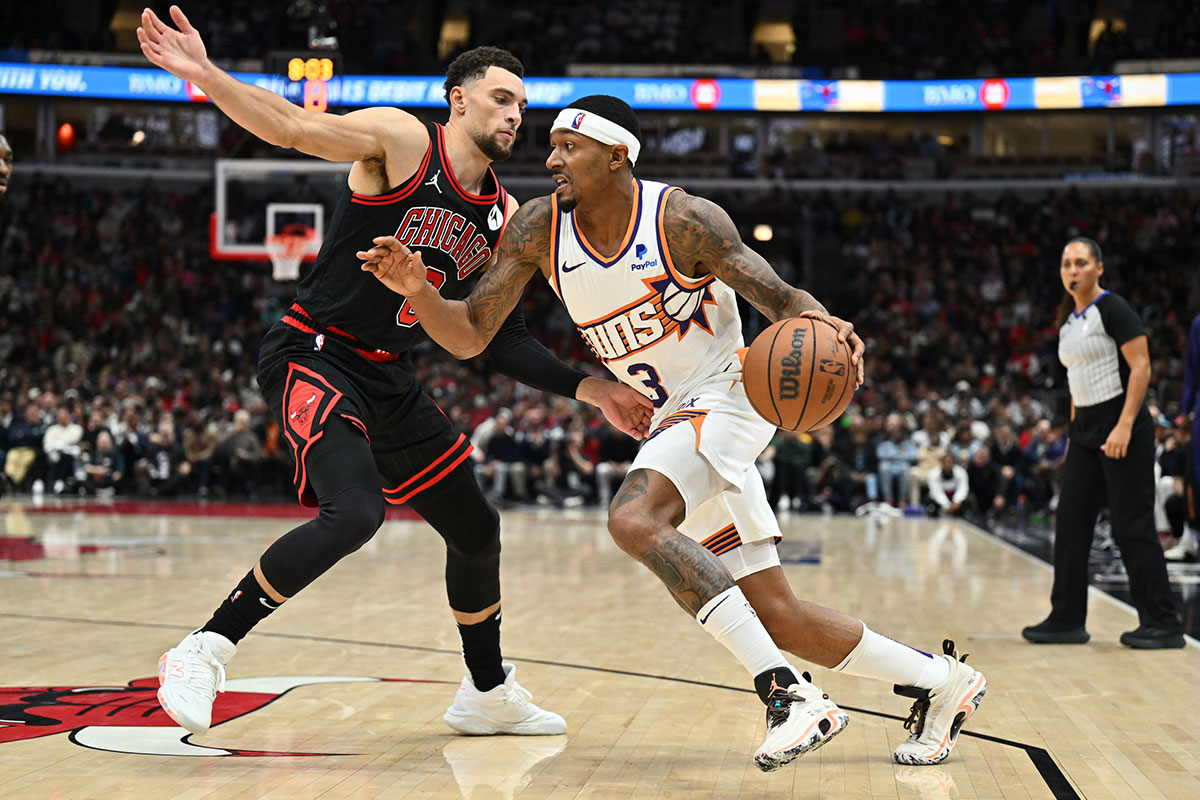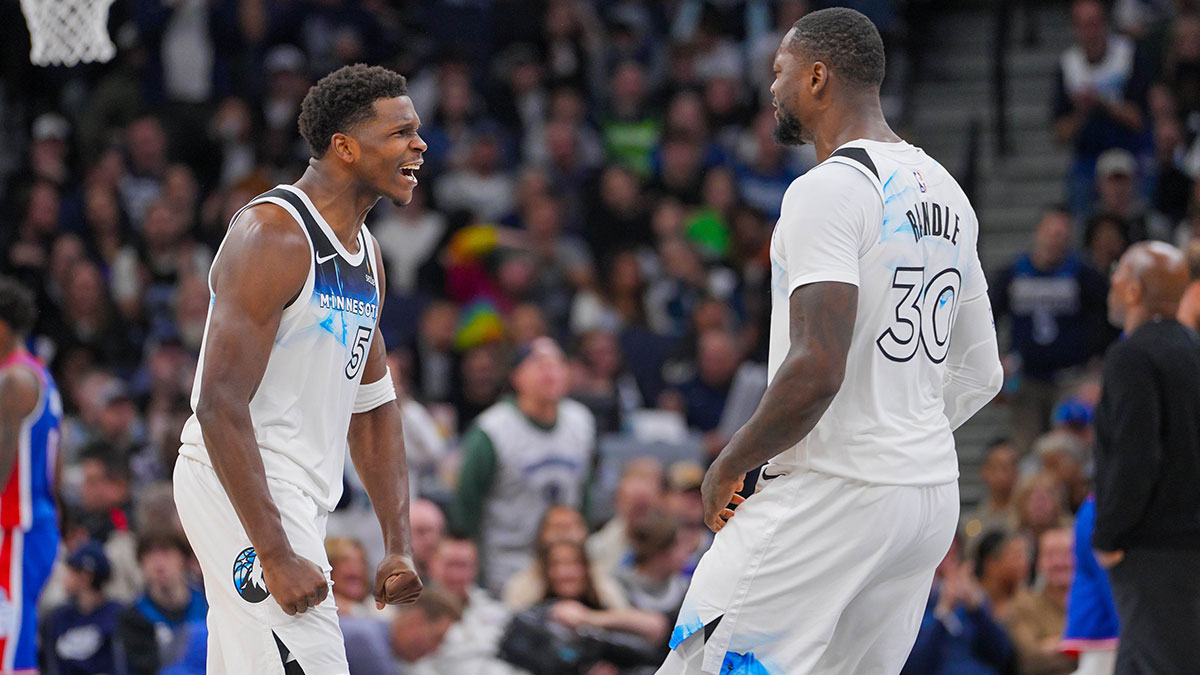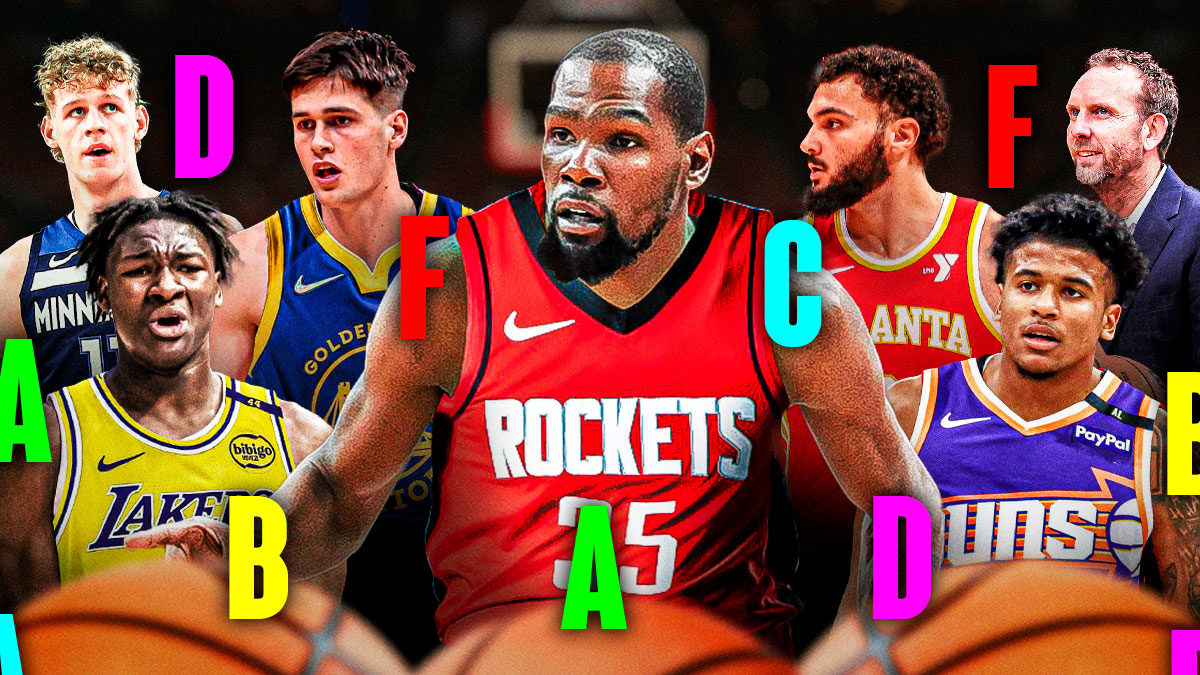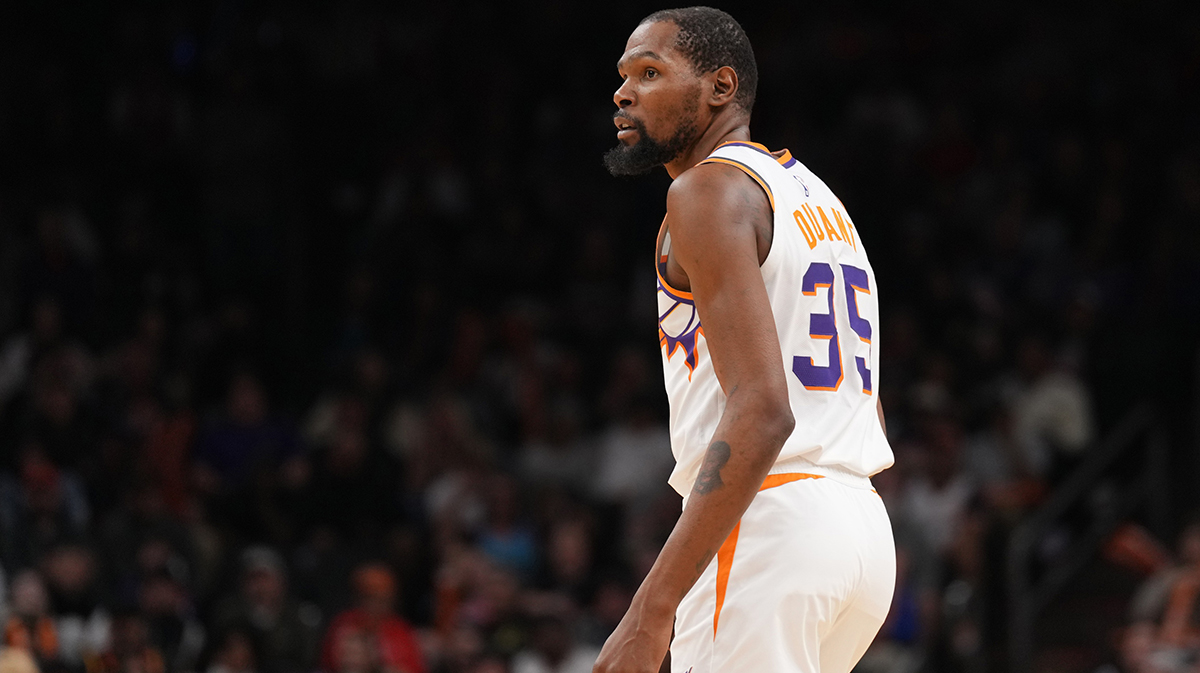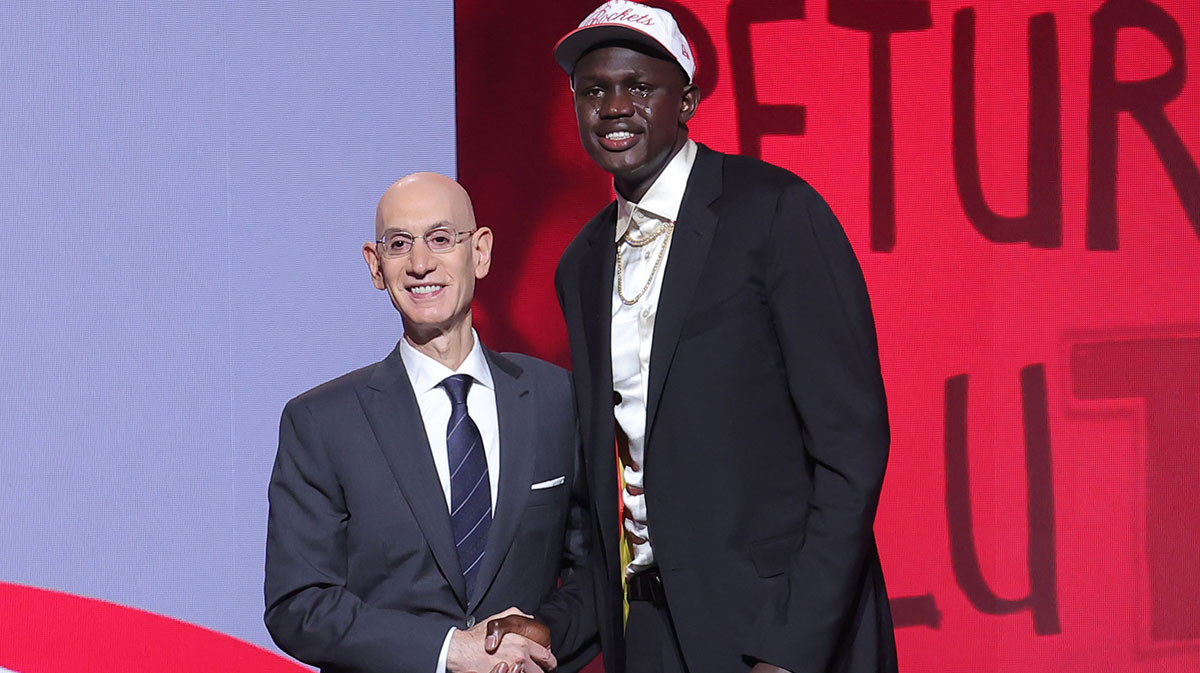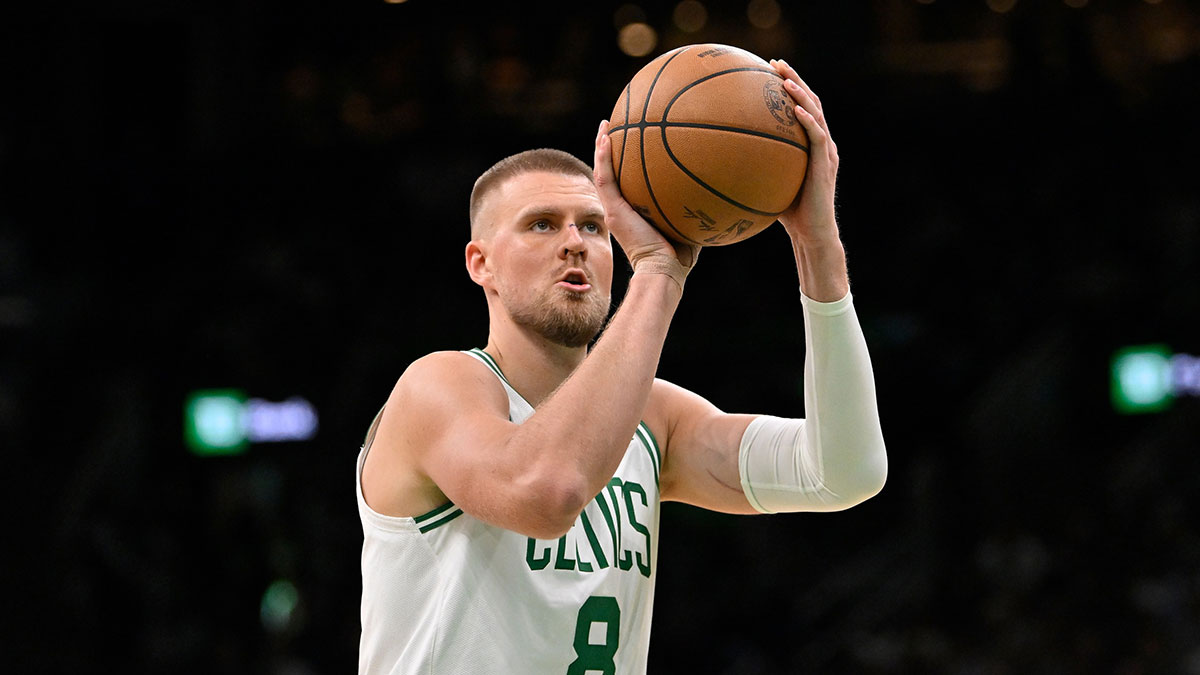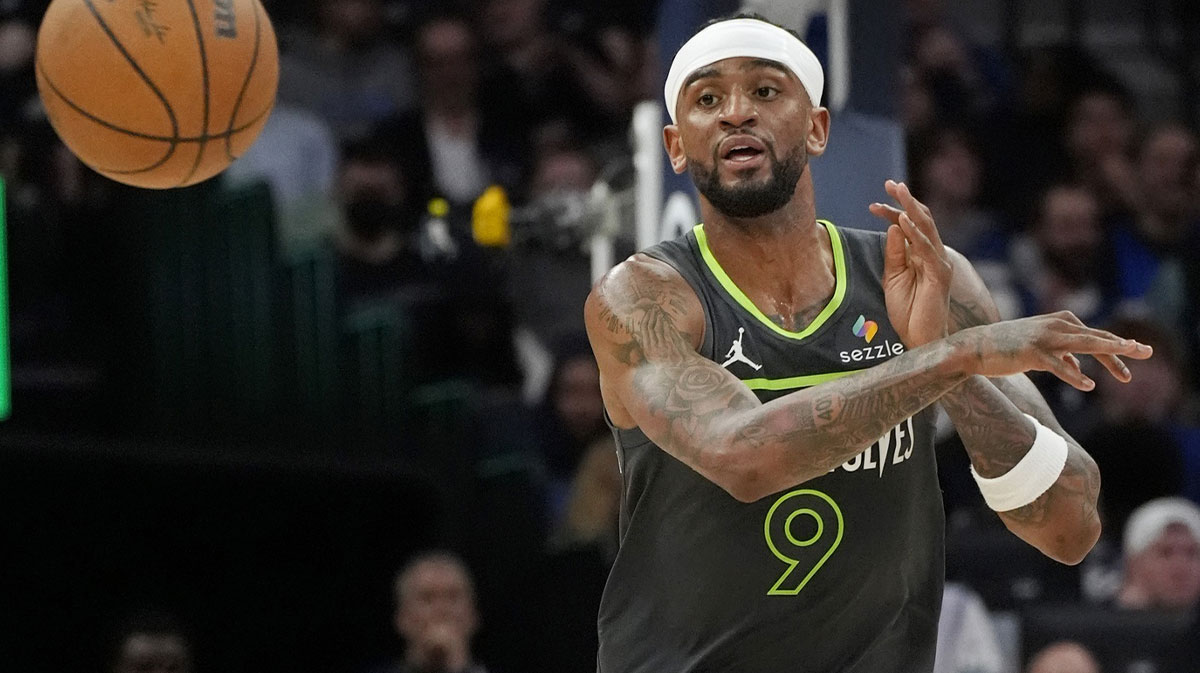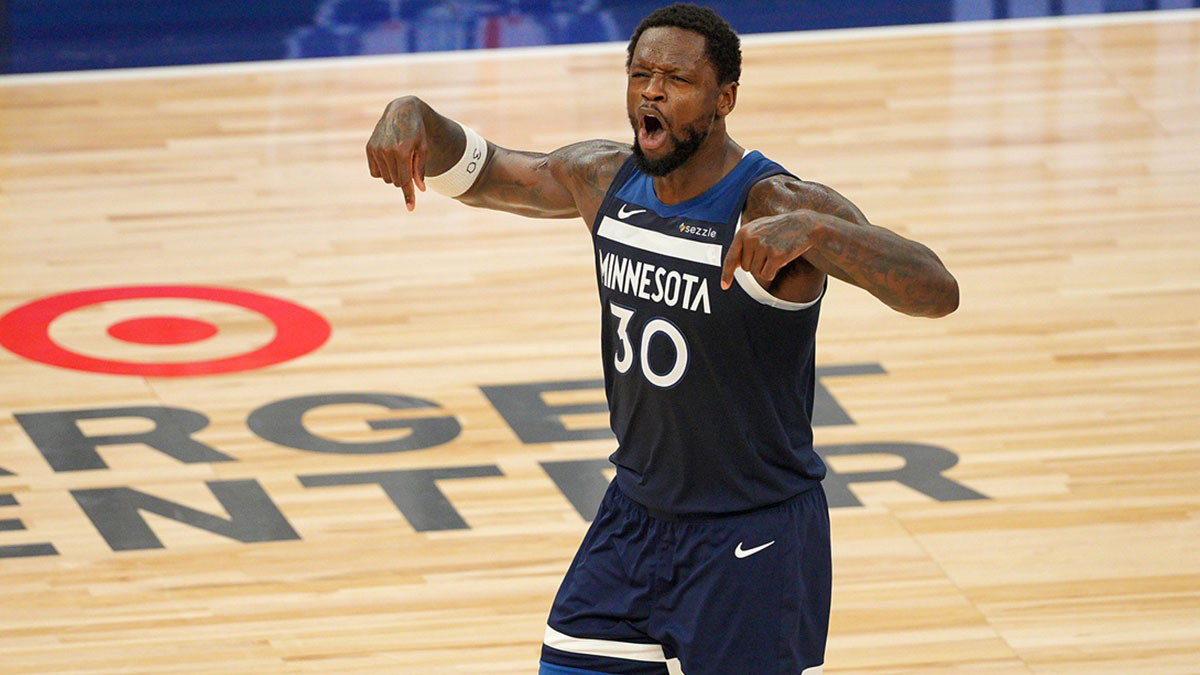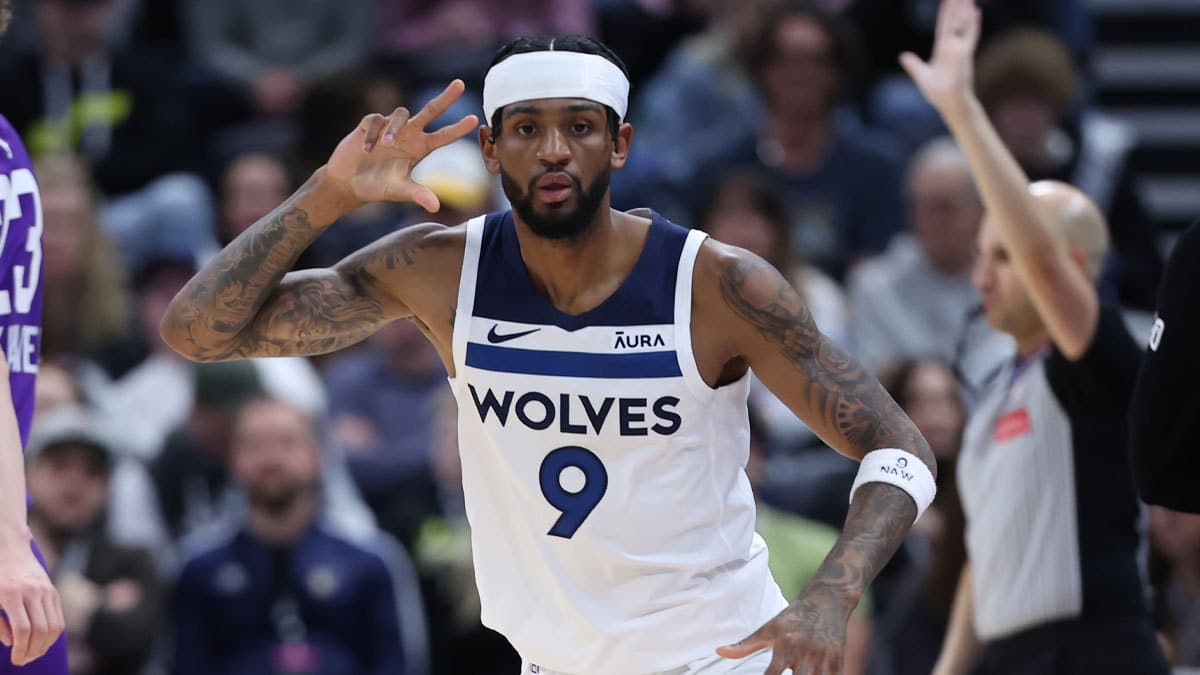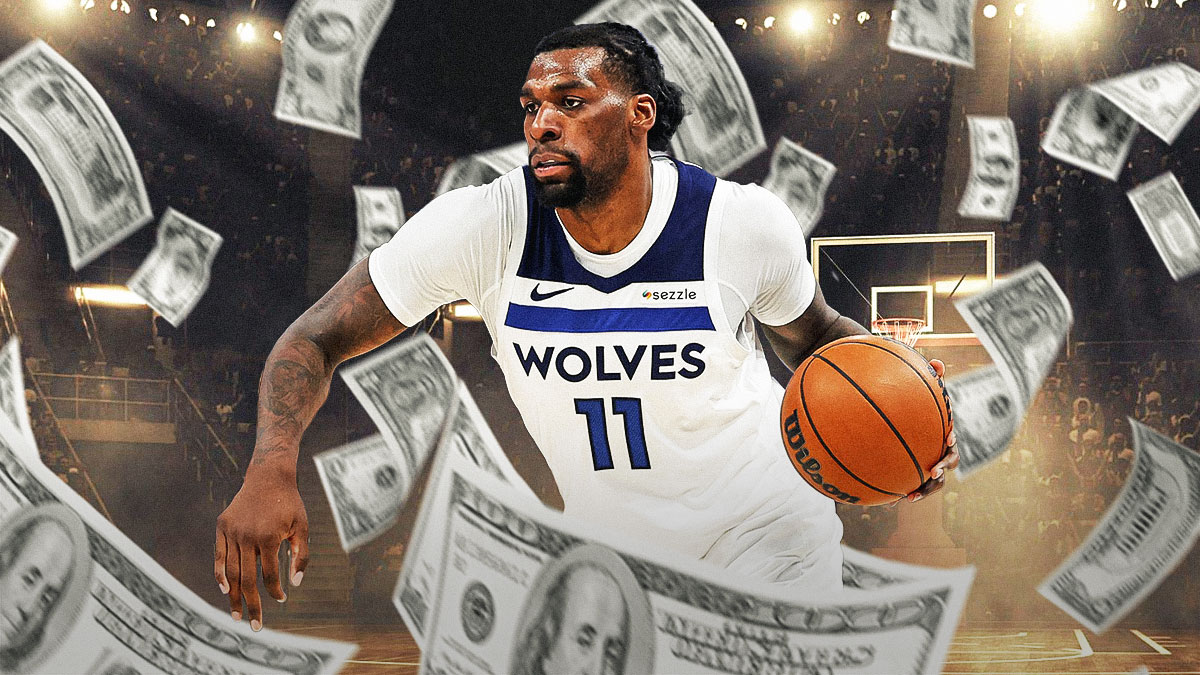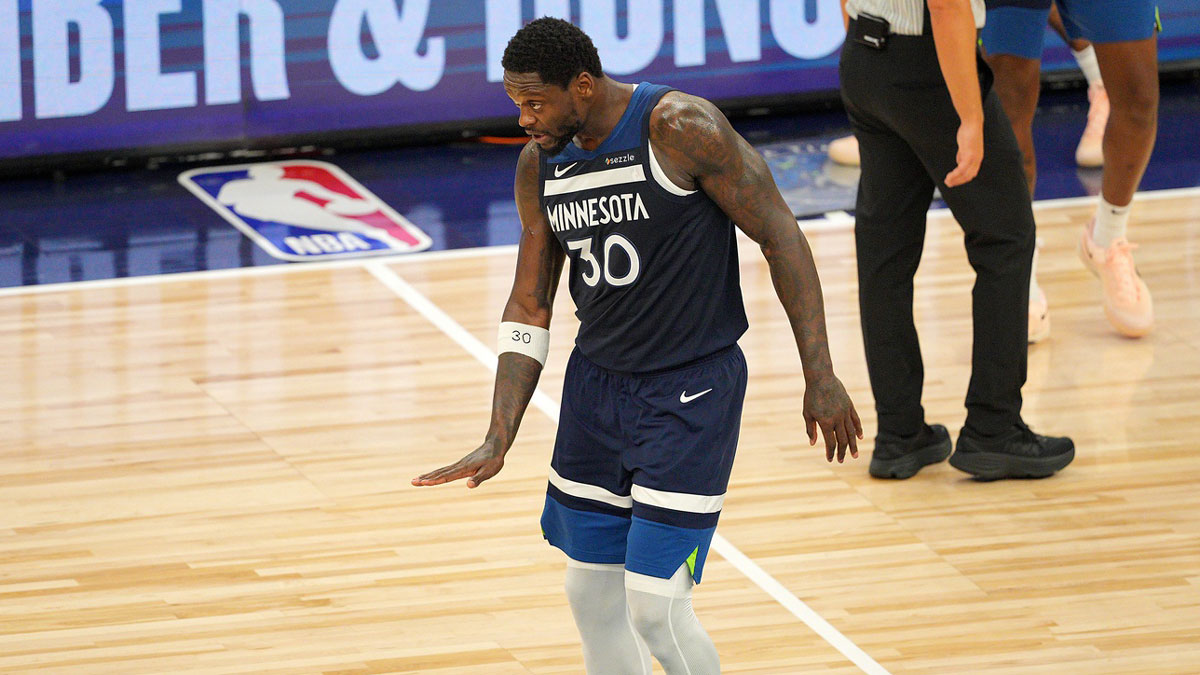Season Autopsies: San Antonio Spurs | Phoenix Suns | Dallas Mavericks | Sacramento Kings | Denver Nuggets | Milwaukee Bucks | Miami Heat | Minnesota Timberwolves
When the Minnesota Timberwolves traded for Jimmy Butler and signed Jeff Teague, Taj Gibson and Jamal Crawford in free agency last summer, they appeared ready to snap their 14-year playoff drought.
They accomplished that mission by the skin of their teeth, beating the Denver Nuggets in a win-or-go-home game on the final day of the regular season to secure the Western Conference's No. 8 seed. Considering Butler missed more than a month of action after suffering a meniscus tear, it was a minor miracle Minnesota finished with its most wins (47) since the 2003-04 season.
“Overall, if you look from where we came to now, that's a big jump,” Crawford told reporters in late April. “Teams don't make that kind of jump in a year. That's very, very rare. So, I think that's a successful season.”
However, the T-Wolves' opening-round waxing at the hands of the top-seeded Houston Rockets highlighted how far removed they still are from joining the Western Conference elite.
With a young core including Andrew Wiggins (23), Karl-Anthony Towns (22) and Tyus Jones (21), the Timberwolves have reason for optimism moving forward. If they avoid serious injuries next season, they should be poised for their first 50-win campaign since the Kevin Garnett era, and they perhaps could secure home-court advantage in the first round of the playoffs as well.
How do they take that next step forward toward legitimate title contention? First, they'll need to decide how much power head coach/team president Tom Thibodeau should wield over the organization.
4. Welcome Thibs to the 21st century

Whereas Detroit Pistons team owner Tom Gores put head coach/team president Stan Van Gundy on notice as the regular season wound down, Timberwolves owner Glen Taylor has done no such thing with Thibodeau (publicly, at least). That doesn't mean Thibs should go unchecked, however.
For the Timberwolves to reach their full potential, Thibodeau will have to battle his overreliance on his starters and veteran players.
This season, three Timberwolves players—Wiggins, Towns and Gibson—ranked among the top 15 leaguewide in terms of total minutes played, and Butler was third overall in minutes per game. Minnesota's reserves, meanwhile, played a league-low average of 13.5 minutes per game throughout the regular season.
In early December, Butler joked about Thibodeau's minutes distribution during a postgame interview, saying, “We gotta talk to Thibs. These 40 minutes are starting to add up.” Gibson and point guard Jeff Teague went on to echo those comments later on in the season.
Taj Gibson with some pretty strong comments on the bench: "They need more time to get a rhythm. Sometimes, they don't really get the minutes that they deserve. Sometimes, when they mess up, they may just get snatched right out."
— Jon Krawczynski (@JonKrawczynski) February 16, 2018
Teague on the bench: "Guys get tired. I think they need opportunities. … Hopefully Thibs sees that they can really help."
— Jon Krawczynski (@JonKrawczynski) March 26, 2018
Thibodeau and Minnesota need only look at the Toronto Raptors as an example to emulate moving forward.
After the Cleveland Cavaliers swept them out of the Eastern Conference semifinals last season, the Raptors sought to eschew their dependence on Kyle Lowry and DeMar DeRozan in favor of a well-rounded team-wide output. Fueled by its dominant Bench Mob, Toronto clinched the No. 1 seed in the East this year.
The Timberwolves' five-man unit of Butler, Towns, Wiggins, Gibson and Jones outscored opponents by a whopping 23.4 points per 100 possessions in 261 minutes this past season, yet Jones averaged only 17.9 minutes per game.
This Minnesota team has more top-end talent than the Raptors, suggesting a higher ceiling. Until Thibodeau learns to embrace 21st-century rotations and begins to lean more heavily on his reserves, however, the Timberwolves will find themselves running out of gas once the playoffs roll around.
3. Round out the bench

To get Thibs to become more egalitarian with his minutes distribution, the Timberwolves must bolster their bench this offseason, as Jones and Gorgui Dieng are Minnesota's only two regular rotation reserves under contract in 2018-19.
Jamal Crawford, the T-Wolves' most-used bench player, plans to decline his $4.5 million player option for next season in favor of becoming an unrestricted free agent, according to ESPN.com's Chris Haynes. Nemanja Bjelica, who ranked second among Minnesota's bench players in both minutes (20.5) and points (6.8) per game during the regular season, is set to become a restricted free agent on July 1. Derrick Rose, who ranked second among the Timberwolves' reserves in terms of minutes played during the playoffs, will be an unrestricted free agent.
The Timberwolves already have $110.2 million in guaranteed salaries on their books for the 2018-19 season, according to Basketball Insiders, which won't leave them with much cap room heading into free agency. If they don't trade their No. 20 overall pick, they'll be sitting at $112.8 million in salaries even after they waive Cole Aldrich to save $4.9 million. Using the full non-taxpayer mid-level exception would push Minnesota dangerously close to luxury-tax territory.
Minnesota could use that No. 20 pick as trade lubrication to shed the remaining three years and $48.7 million on Dieng's contract to free up cap space, but they likely would have to throw in additional assets. Otherwise, they'll have to go bargain-basement hunting for free agents who'd be willing to take less for a chance to ring-chase.
If Bjelica leaves, a reunion with Anthony Tolliver could help add some shooting off the bench. Seth Curry would be a great under-the-radar target as well, provided he's fully recovered from the stress injuries that sidelined him for the entire 2017-18 season. Arron Afflalo might be eager to join a contender on a discount after spending the last three years with the New York Knicks, Sacramento Kings and Orlando Magic.
Regardless of who they're able to lure, the Timberwolves must prioritize adding shooters to the bench above all else.
2. Embrace math

As it turns out, three is more than two. Who knew?
Oh, everyone? Right.
The Timberwolves finished dead last in both three-pointers made (8.0) and attempted (22.5) during the regular season. In the first round of the playoffs, they were tied with the Washington Wizards for last in three-point attempts (21.8) and were 14th in makes (9.0), whereas the Rockets led all teams in both categories.
It's simple math: If the Rockets averaged 15.0 made triples and the Timberwolves averaged eight, that's a swing of 21 points per game. In Minnesota's lone victory against Houston, each team knocked down 15 threes; in the other four, the Rockets drilled 30 more triples than the T-Wolves did.
As Tim Faklis of The Athletic noted, Minnesota still set a franchise record in both three-pointers made and attempted despite its paltry output from deep. That's mostly a reflection of the leaguewide rise in long-range attempts, as teams have begun jacking up threes without conscience to keep up with the likes of Houston and the Golden State Warriors.
Adding shooters to the bench would help Minnesota raise its volume of three-point attempts, but the starters should be more empowered to fire away from deep, too. Since Towns and Teague are the only two above-average three-point shooters in the T-Wolves' starting five, Butler and Wiggins should focus extensively on developing that aspect of their game this summer.
1. Whither Wiggins?

Wiggins became eligible to sign a contract extension last July, but the Timberwolves were reluctant to hand him a five-year, $146.5 million max deal sight unseen.
“To me, by making this offer, I'm speculating that his contribution to the team will be more in the future,” team owner Glen Taylor told Jon Krawczynski of The Associated Press in reference to Wiggins. “We've got to be better. He can't be paid just for what he's doing today. He's got to be better.”
After that offseason hemming and hawing, the Timberwolves ultimately signed Wiggins to the max deal last October. Taylor likely wasn't thrilled with the early returns, though.
Wiggins' scoring output dipped from 23.6 points per game in 2016-17 to 17.7 this past season, but the additions of Butler, Gibson, Teague and Crawford help to explain that away. The bigger cause for concern on Minnesota's end should be his dip in efficiency, as he registered the lowest marks in player efficiency rating (13.0) and true shooting percentage (50.5 percent) of his four-year career.
In theory, Butler, Teague and Gibson should have drawn more defensive attention away from Wiggins and Towns in the starting lineup, enabling them to have a far greater volume of open looks. However, Wiggins had only 10 more wide-open shots (where no defender was within six feet of him) this past season than he did in 2016-17. The problem was a significant dip in efficiency on such looks, as Wiggins knocked down 38.6 percent of his wide-open shots in 2016-17 compared to only 33.8 percent this past season.
In mid-March, Darren Wolfson of KSTP said (via Derek James of 1500 ESPN) Wiggins has “whispered to teammates” about his unhappiness being a third option behind Butler and Towns, begging the question of whether Minnesota's Big Three is viable long term. Butler will be an unrestricted free agent next July, which sets up the 2018-19 season as a make-or-break year for this Timberwolves core.
If Wiggins doesn't take a major leap forward, should Minnesota consider trading him? As Nate Jones of Goodwin Sports suggested on Twitter, another capped-out team may be willing to absorb the risk of his plateauing to shed some of their bad contracts in exchange.
https://twitter.com/JonesOnTheNBA/status/989991987540475904
In all likelihood, the Timberwolves will run back their same core, bolster their bench and hope for better luck when it comes to health next season. Despite Wiggins' lack of significant improvement this past year, giving up on a 23-year-old with his athleticism and potential would be a sizable risk for Minnesota.
The idea not being unfeasible says all you need to know about Wiggins' current outlook, though.
Unless otherwise noted, all stats via NBA.com or Basketball Reference. All salary information via Basketball Insiders.

